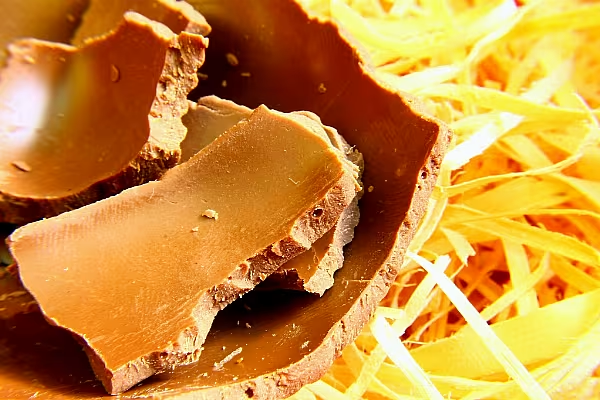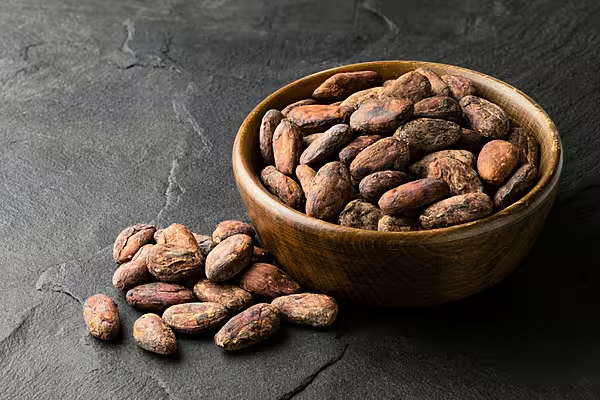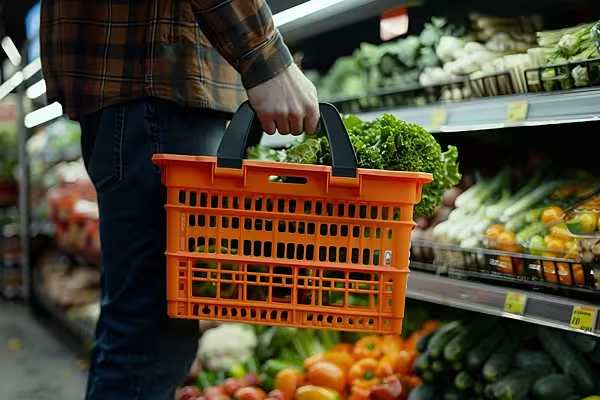At a supermarket in Sao Paulo, Lenita Lima browses through hundreds of chocolate eggs to find the ones she can afford to give her daughter and eight nephews this Easter. She eventually gives up.
"Those are way more expensive than last year," said Lima, 40. "Our salaries aren’t going up at the same pace."
Cash-strapped Brazilians, used to buying chocolate Easter eggs for friends and family, are kicking the habit this year as prices rise amid a political and economic crisis. Retailers are already bracing for lower sales. Supermarkets’ Easter-egg purchases dropped 13 per cent this year once price increases are excluded, according to the nation’s association of supermarkets, or Abras.
Lower local consumption is driving a surge in the nation’s exports of cocoa butter, the fatty oil extracted from cocoa beans that give chocolate its rich, smooth taste. Almost 20 per cent of a chocolate bar is cocoa butter. Shipments climbed 61 per cent last year to the highest since 2007 and exports are showing no signs of abating, government data showed.
Brazil’s Crisis
"We do have a crisis – we have a very depressed economy, no doubt about that," said Thomas Hartmann, head of the statistical service of the Commercial Association of Bahia, Brazil’s main cocoa-producing state. Exports are "a reflection of reduced cocoa-butter consumption in the Brazilian market".
The deepest recession in a century has hit Brazil’s economy after plunging commodities and a slowdown in China, the country’s biggest trading partner, sapped revenue from exports including iron ore and soybeans. The real has weakened more than 15 per cent in the past year.
Easter is a major celebration for Brazilians, the world’s biggest Catholic country, and stores hang eggs wrapped in brightly colored foil from the ceiling. The price of a 375-gram chocolate egg is about 45 reais ($12), or about 5 per cent of the nation’s gross monthly minimum wage.
Price Sensitive
Chocolate confectionery-sales growth in Brazil’s $4.4 billion market slowed for a second year in 2015, according to researcher Euromonitor International in London. While sales are still growing, consumers in the South American nation are "very price sensitive," with only 23 per cent putting quality of the chocolate before costs, said Marcia Mogelonsky, director of insight, food and drink at Mintel, a market-research company.
Sales of Easter eggs will fall even as prices increase, Abras said in a statement. Retailers only ordered more chocolate products than last year in cheaper categories such as bonbons and bars. If adjusted for inflation, sales would also be lower, the group said. Chocolate eggs account for about a quarter of all the revenue from chocolate sales at Easter, according to Nielsen.
While Easter is still a few weeks away, Brazil’s cocoa-butter exports surged last year as as chocolate makers held off on buying the ingredient. Manufacturers usually buy in the wholesale market several months before their finished products hit the shelves. Butter used to make Easter eggs would normally be purchased in the fourth quarter or early in the first.
Brazil’s cocoa-butter shipments rose to 26,993 metric tonnes last year, with more than half heading to the US, according to the nation’s foreign trade secretary. Overseas sales climbed 80 per cent in the second half, helping slow cocoa-bean processing in North America, which the Washington-based National Confectioners Association says contracted 3.3 percent in the last three months of 2015.
Demand for cocoa butter in Brazil’s domestic market will probably remain low as the nation’s chocolate market slows, while grinders will keep processing the beans that yield both butter and powder, Hartmann said. In January, overseas sales rose 54 percent to the highest for that month since 2008, government data showed.
“As long the butter is coming out, because it has to come out, and it’s not being taken by the internal market, exports will remain high,” Hartmann said.
News by Bloomberg, edited by ESM. To subscribe to ESM: The European Supermarket Magazine, click here.














